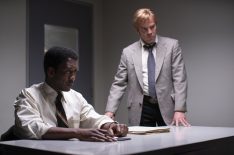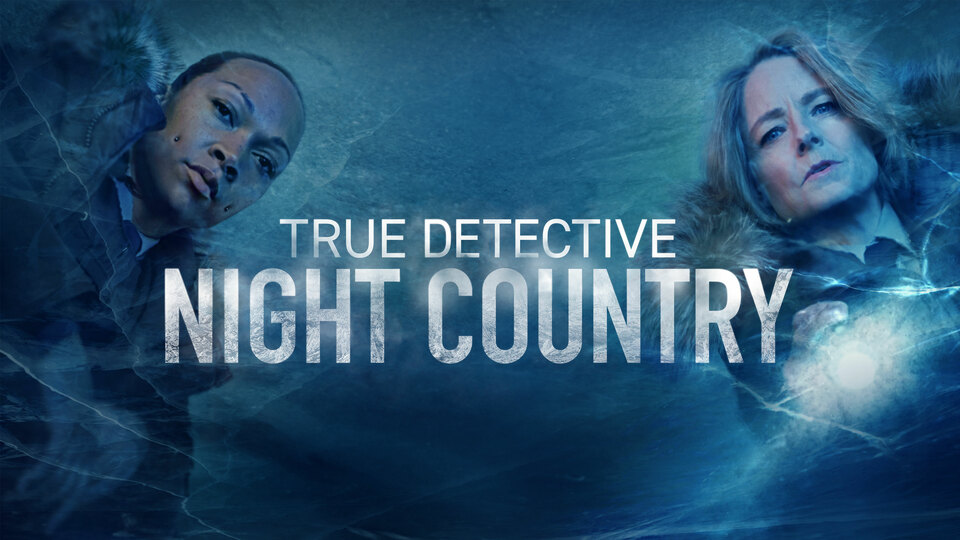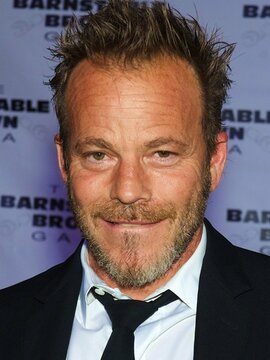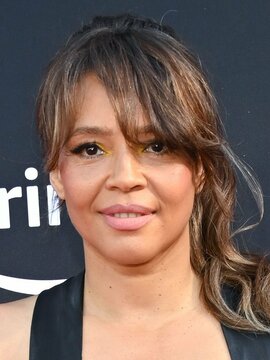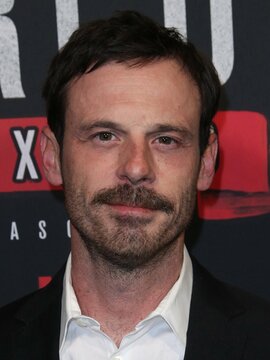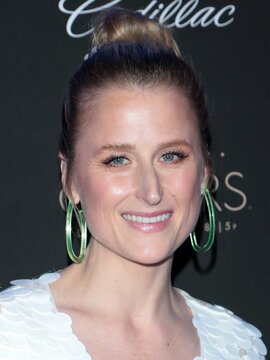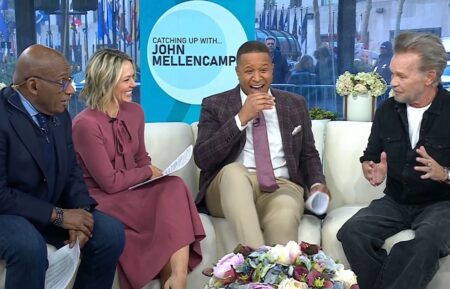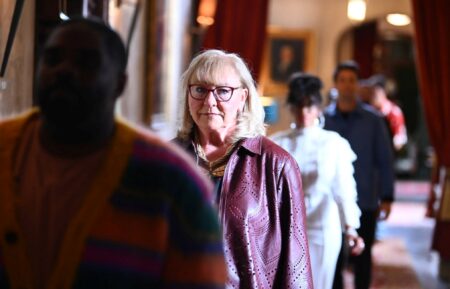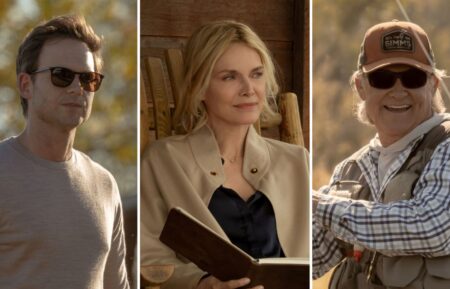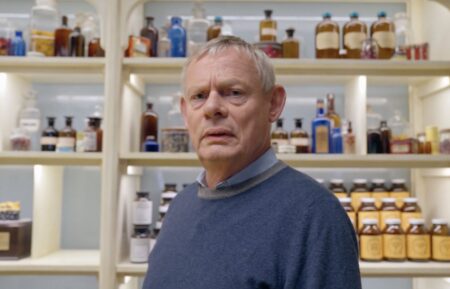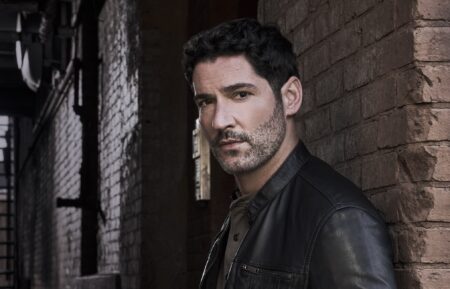‘True Detective’: How Did Mahershala Ali Tackle Playing 70 Years Old?
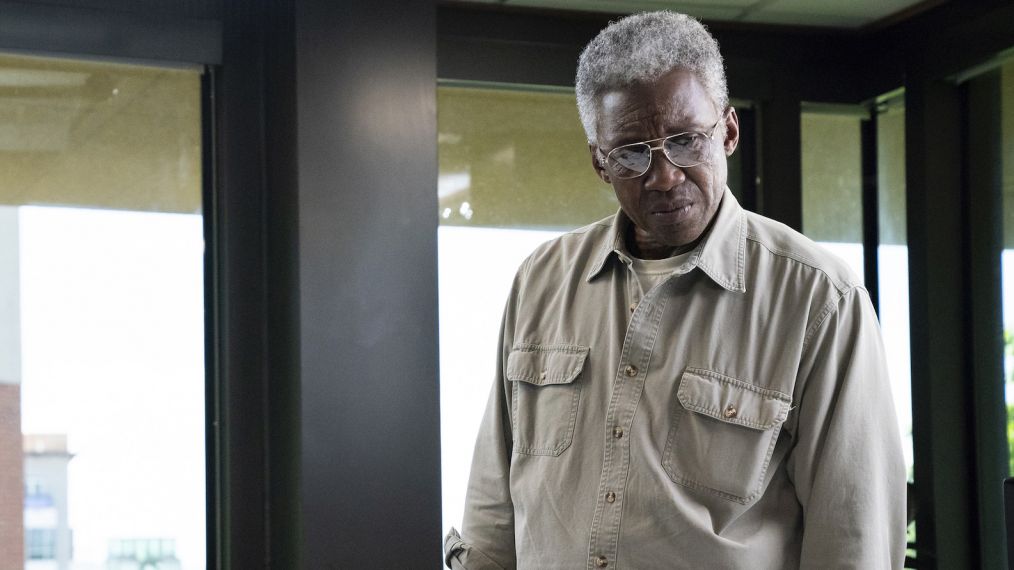
Q&A
Will Wayne Hays solve the case that’s plagued him for decades before his memory disappears due to Alzheimers?
That’s where we’re at in Sunday’s episode of HBO’s crime drama, True Detective, as, in 2015, a 70-year old Wayne (Mahershala Ali) seeks out his former partner, Roland West (Stephen Dorff), whose help he needs in the case that’s forever haunted them.
As the third season of the Nic Pizzolatto drama continues, the trio of timelines explored as Hays and West investigate the disappearance of a young girl and the murder of her brother are complex and fascinating as we see how much the case infiltrates their lives on a variety of planes. But will the elder Hays and West finally be able to solve this unsolved mystery?
To find out more about the current season and the process that Ali and Dorff went through with their makeup for the later timelines, TV Insider sat down with Ali recently in Los Angeles.
Obviously TV and film don’t really matter to you in the sense that it’s not one or the other because you’re doing great work on both fronts.
Mahershala Ali: Thank you. They do matter but I think it matters less now to the world sort of making branding judgements of people. I think that just in the culture, as long as you sort of oscillate between the mediums in a way that always embraces quality, then I think people will roll with you in jumping from stage to TV to film. And that’s a great thing because you don’t have to necessarily feel adverse to doing a medium or any resistance to doing TV or hopping on stage or what not. For me, it’s about the material being great.
How did you wrap your head around the three different timelines? Did you see Wayne as three different characters
I didn’t see it as three different characters, I just felt like I needed to be really clear on where I was starting the story and how time and experience impacts where Wayne is at for the entirety of the journey. Coming into it, he’s a few years out of Vietnam and what are the real world residuals of that? Especially in 1981, guys are not speaking about that and it’s a war that they were not embraced, all the effects of mentally and psychologically, spiritually from having participated in that and feeling like the war wasn’t supported. They came home to an absolute mess and didn’t get to be the heroes that their fathers were or their grandparents were because those guys always came home and were celebrated. They’re the first to be shunned from just doing their duty. I stepped into Wayne’s shoes with that and within that time, early on, you see that he’s discovered hope, he’s discovered love. It’s a feeling that is really alien to him.
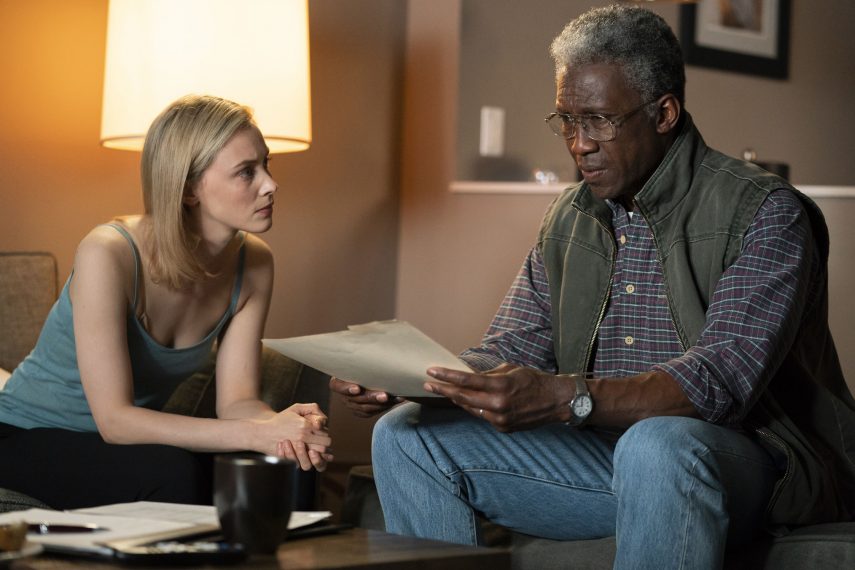
Sarah Gadon plays documentary filmmaker Elisa Montgomery, who tries jarring the memory of a 70-year old Wayne Hays (Mahershala Ali) in True Detective.
Then you get 10 years of that and you jump to 1990, how does that change him? There’s some steps back in his life but I think that’s there’s some things that have somewhat blossomed and allowed him to change and be affected by having a partner. For me, I really keyed in on the jumps or the subtle shifts and differences between Wayne in 1980 and Wayne in 1990. I think it’s a given that there’s these obvious tools that I get to lean on in 2015 in trying to really capture someone who’s lived a full life with my voice and the body and the makeup does its work as well. I could lean on several things later on to sort of help me, my walk is very different by that time.
Watching the series, we bounce between the time lines. How did you shoot?
The best we were able to do was stay in 1980 for about — I’m guessing here — for three weeks of shooting and then we had to start incorporating 1990. We were jumping back and forth between ’80 and ’90 and then we had to finally start bringing in 2015 because we were getting so far down the road on the schedule.
What was it about the Purcell case that really got in your character’s life? This case really became a part of him and influenced so many areas of his life, his marriage, and other things.
That’s a great question. Wayne is somebody that wants all to be right in the world but he knows the world is really dark and sort of screwed up. But this is a case that goes beyond what those two police officers are normally processing and normally dealing with. What makes this case unique is its connection to Amelia (Carmen Ejogo). Also, him feeling like he’s so close to feeling like he’s going to close it out and finish it and it becomes this concerted effort on the part of Wayne, Roland, and Amelia to solve this case. The more they invest in it personally, I think the more it takes hold in their lives and is something that turns into this albatross. It’s almost like they got infected with it and spend decades trying to address this ailment that they have and just trying to solve it so that they can all move on.
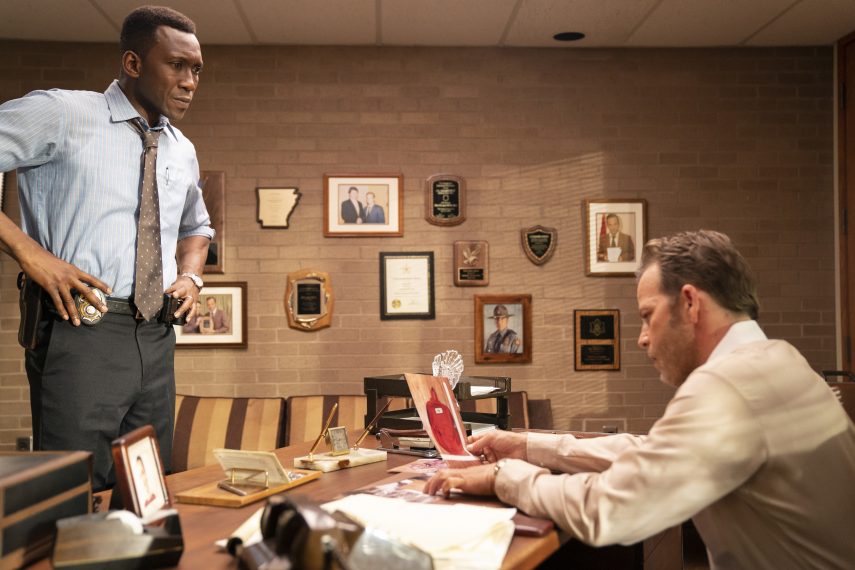
Mahershala Ali and Stephen Dorff as Wayne Hays and Roland West
We really see the good times and the bad between Wayne and Amelia. Why do you think he turns on her somewhat? Do you think he resents her for being a part of this and her book about the case?
He resents her. He resents that she was able to take something that he has a workman like relationship with and she was able to take that and do something artistic with it and choose to participate in it in a way that would bring about some sort of creative benefit to her. I think that there’s that element in it. I think that he’s also threatened by her success because his relationship to his work and to that job shifts over the course of those 10 years. He’s not in the same position in 1990 that he’s in in ’80 but her trajectory has been one that has stayed on the incline. It’s very difficult for him to be supportive of her and feeling like his manhood, his whole being, his status in their relationship even is all impacted by the status of his work and how she’s been able to take that and do well and he’s been diminished as a result of being a real detective.
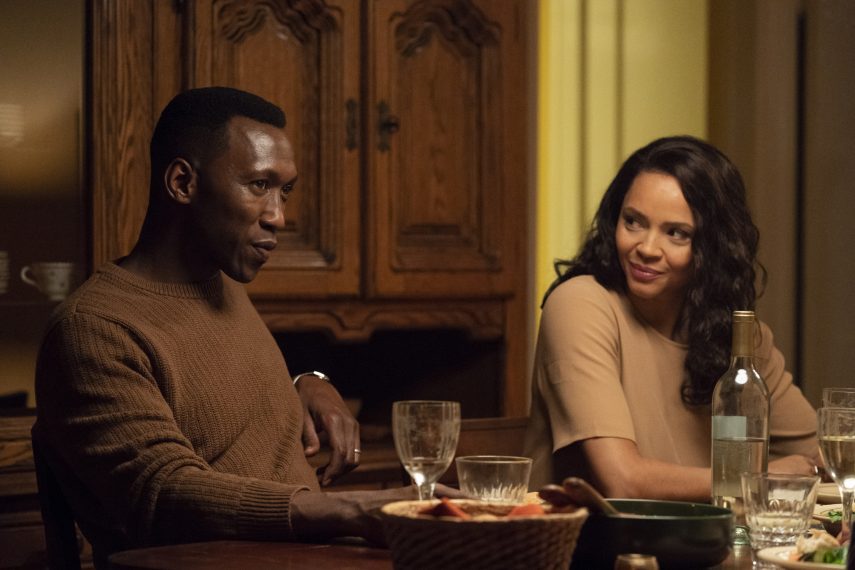
Wayne Hays (Ali) and Amelia (Carmen Ejogo)
How was that 2015 timeline different from the others given the makeup you and Stephen had to endure?
2015 was a lot of pressure on our shooting schedule because it’s Stephen and I spending five hours in the makeup room. Early on it was like six hours in the makeup chair. Five, six hours in the makeup chair then you go off and you try to do a 12 hour day. Then you take it off for an hour and then they cut they down, Mike Marino’s team got that down to three hours and then you do the full day. It would be like an 18-hour day anytime we were old and that’s a third of the story. But, we worked it out and we got through and did it and I think we’re all better for it.
When you looked in the mirror, what did you see?
I didn’t see myself and that was the important thing. My first rehearsal is the first costume fitting. I always say that because you start making these choices or you’re being offered up stuff and I used to think ‘oh god, I would never wear that.’ Then shortly after that, I’m talking years back when I started acting, anytime they would bring out stuff that I would absolutely never wear, I’m like ‘that’s great because that’s where the character is. The makeup, it was almost like the wardrobe where that’s not me. Great. I can lean into that and make sure that there’s a difference between who I am as Mahershala and who this character is. That was a real gift.
True Detective, Sundays, 9/8c, HBO

